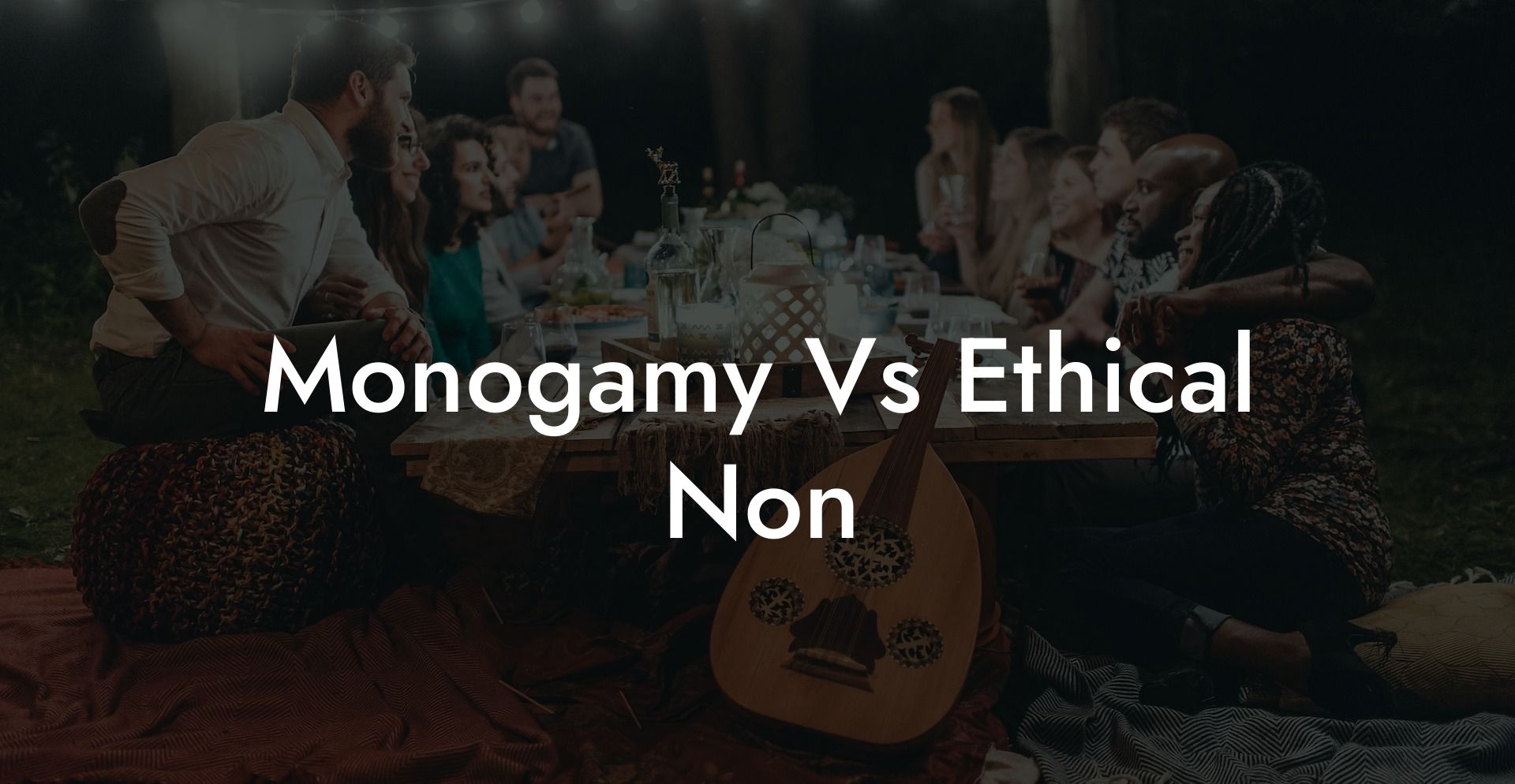As we evolve as a society, we continue to explore and challenge our relationship structures and ideas about love. Monogamy has been the mainstream narrative for centuries, but there's a growing curiosity and acceptance of ethical non-monogamy. In this article, we aim to delve deep into the differences, pros and cons of monogamy versus ethical non-monogamy, and explore how to find the right path for oneself.
Monogamy Vs Ethical Non Table of Contents
Defining Monogamy and Ethical Non-Monogamy
Defining Monogamy and Ethical Non-Monogamy
Monogamy
Monogamy is the practice of being in a romantic and/or sexual relationship with only one person at a time. It is the most widely accepted and practiced form of relationship in modern society.
Ethical Non-Monogamy
Ethical non-monogamy is an umbrella term for various relationship styles that involve more than one partner, with the consent and knowledge of everyone involved. This can include open relationships, swinging, and polyamory.
The Pros and Cons of Monogamy
- Pro: Emotional Security. Monogamy offers a level of emotional security because both partners commit to being exclusive, providing a sense of comfort, reliability, and stability in the relationship.
- Pro: Lower Risk of STDs. If both partners are exclusive and practice safe sex, monogamous relationships have lower risks of sexually transmitted diseases.
- Con: Dependency. Monogamous relationships can become too dependent on one another for emotional support, which may lead to an unhealthy dynamic.
- Con: Boredom. For some, spending a lifetime with one partner may lead to feelings of boredom or a lack of excitement in the sexual aspect of the relationship.
The Pros and Cons of Ethical Non-Monogamy
- Pro: Variety. Ethical non-monogamous relationships offer the possibility of exploring new experiences and connections with multiple partners while remaining honest and consensual.
- Pro: Personal Growth. Ethical non-monogamy can encourage open communication, self-awareness, and introspection, promoting personal growth and emotional intelligence.
- Con: Complicated. Multiple relationships can be complicated to manage due to the additional emotional and time investment, making these relationships more demanding.
- Con: Jealousy and Insecurity. Navigating polyamorous relationships requires dealing with feelings of jealousy and insecurity, which can be challenging for some individuals.
Finding the Right Path: Communication is Key
Determining whether monogamy or ethical non-monogamy is the right choice depends on each individual's values, needs, and desires. Open and honest communication with oneself and potential partners is essential.
- Self Reflection: Identify personal values and relationship goals. Consider which relationship model is best suited for one's lifestyle and emotional well-being.
- Clarify Boundaries: Establish and regularly communicate boundaries with all partners involved. Ensure that everyone is aware of and respects the agreed-upon rules.
- Check in: Periodically reassess the relationship and goals. Life and emotions evolve, and it's crucial to stay open to changes and shifts in perspectives.
Monogamy Vs Ethical Non Example:
Carla and her partner, Jack, had been in a monogamous relationship for five years. Over time, they began feeling stagnant in their relationship and desired to explore new experiences together. After many open and honest conversations, they decided to try ethical non-monogamy and explore the swinging community. Carla and Jack frequently communicated their boundaries, emotions, and any changes that occurred, which helped strengthen their relationship and created the space for personal growth.
Finding the right relationship structure for oneself is a personal journey of self-exploration, communication, and growth. While society may have a preference for monogamy, exploring the realms of ethical non-monogamy can be eye-opening and rewarding as well. The Monogamy Experiment is here to guide and support you, whether you choose a journey of monogamy or ethical non-monogamy. Share this article if you found it insightful and explore our other posts to continue your relationship education.













